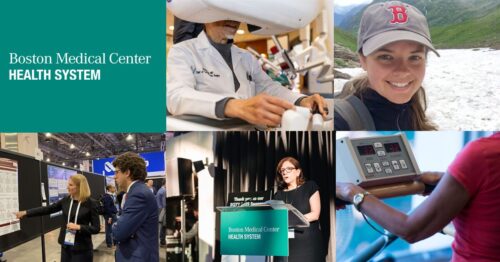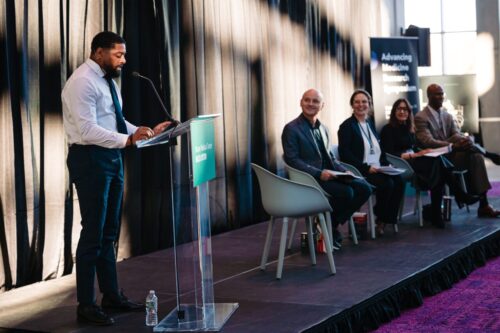BMC Launches COVID-19 Vaccination Program for Homebound Seniors
February 16, 2021
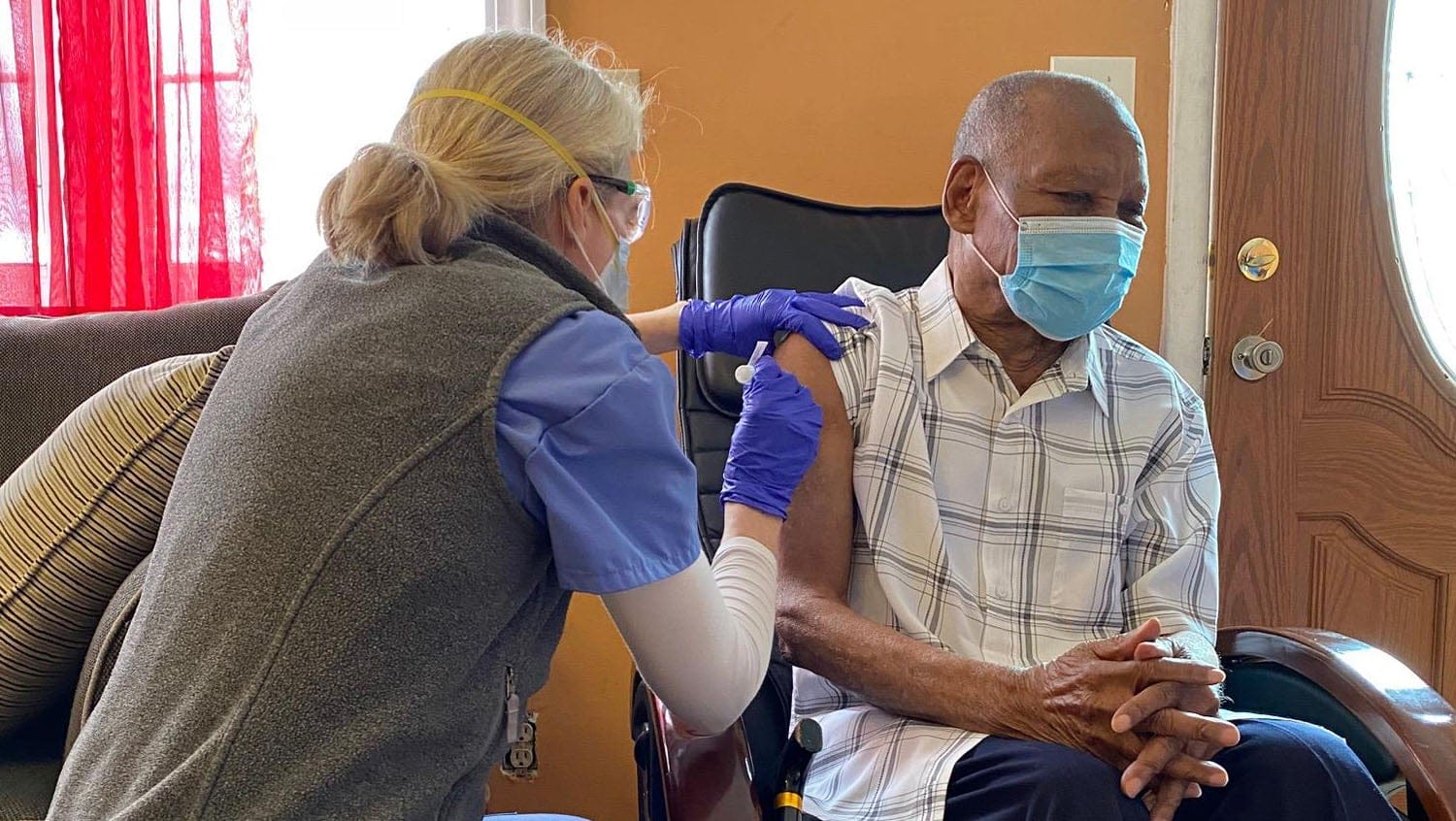
Jenny Eriksen Leary
Seniors are at high risk for severe COVID-19, but traveling to vaccination sites isn't easy. So, the program is bringing the vaccine to them.
From the early days of the COVID-19 pandemic, it’s been clear that older adults who are infected face a greater risk of severe illness, hospitalization, or death than younger people. Eighty percent of COVID-19 deaths across the U.S. have been in adults 65 and older, with the greatest risk among those 85 and older. Another higher-risk group is people with certain underlying medical conditions, or comorbidities, such as pulmonary, heart, and kidney diseases.
As COVID-19 vaccines become available, there is special urgency to immunize the most exposed and vulnerable groups as soon as possible. Phase One of Massachusetts’ vaccine rollout prioritized frontline health workers, first responders, and people living in shelters and congregate care settings. In Phase Two, which began February 1, individuals over 75 and those with two or more comorbidities are eligible. But for people in those populations who are homebound, the opening of public vaccination sites, whether giant stadiums or local pharmacies, do little to increase their access. Receiving the vaccine at home could make all the difference.
On February 1, the Geriatrics Home Care Program at Boston Medical Center launched a COVID-19 vaccination home visit program for more than 400 homebound patients who fall into the early Phase Two eligibility and are not receiving the vaccine through a senior housing facility.
The Geriatrics Home Care Program is the oldest home-based primary care program in the nation. Its team of geriatricians and nurse practitioners make an average of 40 visits weekly to frail elders in Boston neighborhoods. Some of those neighborhoods, such as Mattapan, Dorchester, and Hyde Park, are home to communities of color that have been disproportionately impacted by the COVID-19 pandemic.
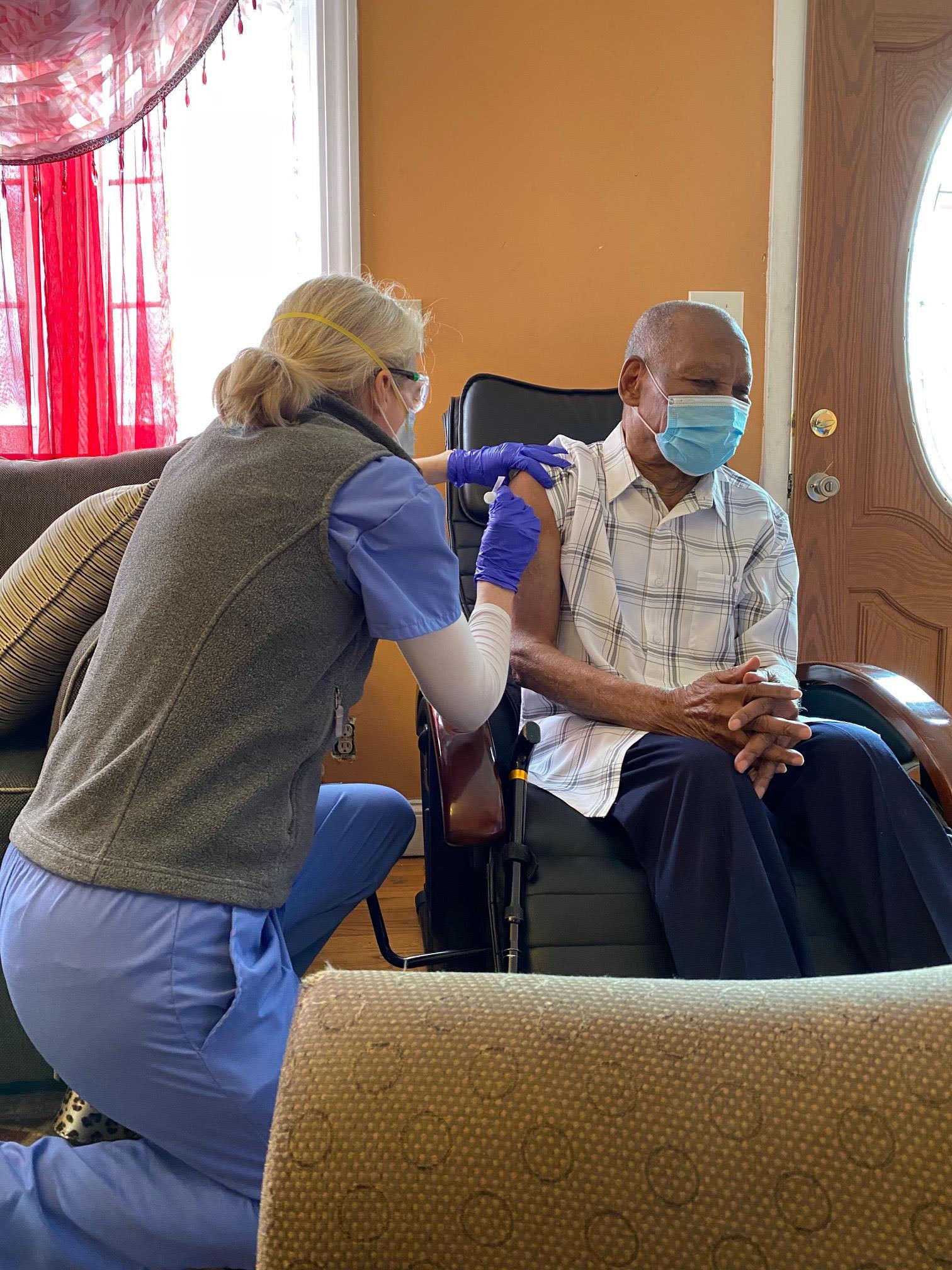
While grassroots nonprofits and other local partnerships have been working to place vaccine sites close to hard-hit communities in nearby Chelsea and Quincy, BMC’s effort so far is the only one bringing the vaccine to older Bostonians in their homes. In the BMC program, a team of eight providers is expected to offer at least the first COVID-19 vaccination dose to all of its eligible homebound patients by early April, according to Dr. Won Lee, who directs the home care program.
Logistical challenges for homebound seniors receiving the COVID-19 vaccine
BMC’s home care team has significant experience with in-home vaccinations, Lee notes, having administered flu and pneumonia shots to its homebound senior population for at least 30 years.
Still, the COVID-19 vaccine presents a host of new logistical challenges with its two-dose regimen, refrigeration needs, and quick spoilage once opened, in addition to the elaborate extra precautions needed for any home visit during a pandemic.
“We vaccinate our whole program every single year with the flu shot,” Lee says, “so we’re very used to this. But the two doses doubles the number of vaccines we have to give, and the second dose has to be within four weeks — so logistically, it’s really hard.”
She adds, “On top of that, we aren’t only a vaccine program. We’re managing acute and chronic medical issues. We want to vaccinate as many people as we can in a short amount of time, but we don’t want to ignore their other medical issues.”
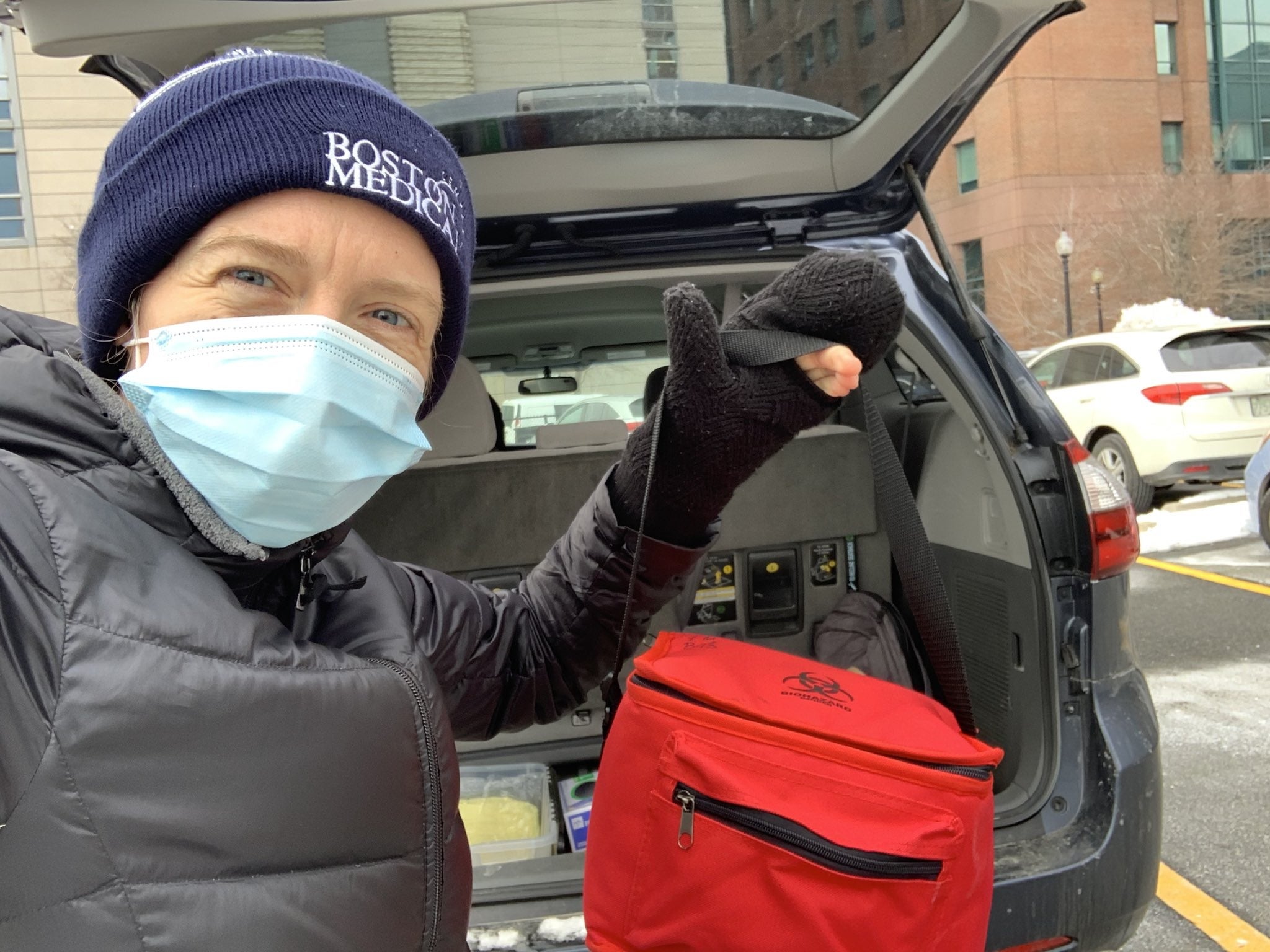
The plan is for the clinicians to each visit at least five patients per outing. From the time the vaccine doses are drawn at BMC and placed in coolers and into vehicles, they’ll have just six hours to get through traffic, reach patients’ homes, prepare and administer the shot, observe patients for 15 to 30 minutes in case of allergic reaction — and after all visits are complete, return to BMC to make sure any remaining doses aren’t wasted.
“So when I’m out on these visits, it’s like a sand timer going through my mind the whole time, saying, ‘What if traffic is very heavy, or what if someone’s not ready?’” says Lee.
The first week was planned as a “soft launch” with 10 patients scheduled for and ultimately receiving vaccination. The week of February 8, the program vaccinated 74 people.
Addressing vaccine hesitancy among senior citizens
Lee knows the team could encounter vaccine hesitancy, though a BMC home care patient survey revealed that just 1% would refuse the vaccine. The program will schedule patients only if they confirm they want the vaccine, but there’s always the chance someone will have last-minute concerns — either the patient themselves or close family members or proxies who assist with their care and medical decisions. Lee recalls one patient who earlier had decided to get the vaccine, but her niece who acts as her healthcare proxy grew hesitant when the opportunity came, saying, “I don’t know any 89-year-olds who’ve gotten the vaccine yet.”
Some anxiety is natural, Lee acknowledges, and it’s true that because of the structure of the vaccine rollout, not many older adults in the community have yet been vaccinated. But she hopes these homebound seniors will see the value of COVID-19 vaccination.
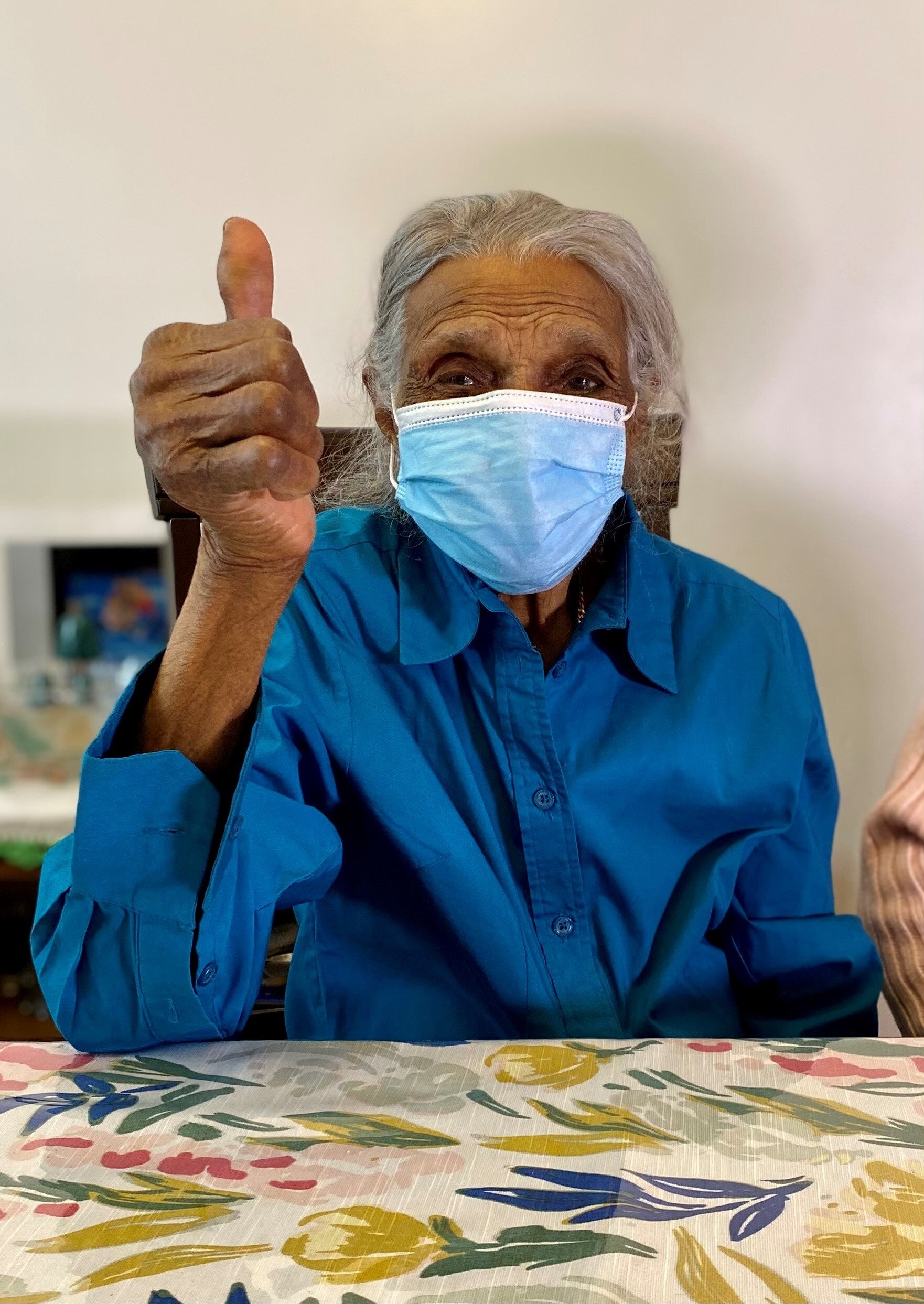
“You have to be cautious about anything that’s new,” she says, “but I say the studies have shown it was tested in older adults and shown to be safe and effective. I recommend it for all my patients, especially given the fact that if an older adult gets sick from COVID, the risk of getting very sick or even potentially dying from it is quite high. It’s scary to get something new, but I think the risk is outweighed by the benefit.”
